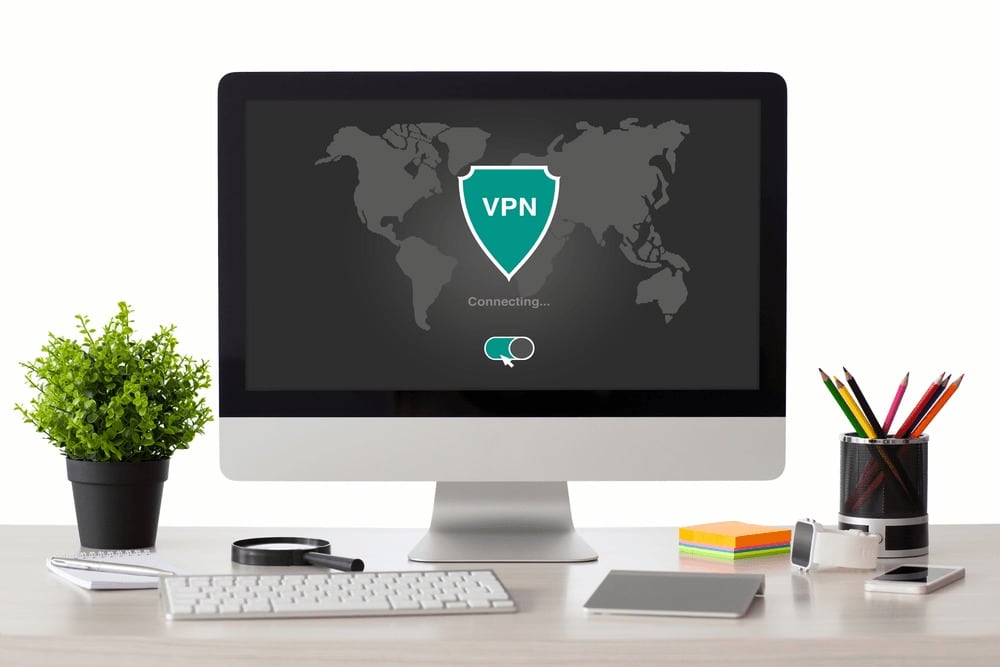Have you ever tried accessing a website only to be shown an error—"Access Denied: You are not authorized to view this content in your region"? Or wanted to anonymously browse the internet without being tracked?
Well, you‘re not alone. Internet censorship and geo-blocking have become pervasive. And privacy concerns are at an all-time high.
Thankfully, there is a simple solution to take back control of your online freedom – residential proxies.
In this extensive guide, you‘ll learn all about residential proxies, their benefits, and the 5 best providers you can use in 2023 for privacy, web scraping, and accessing restricted content worldwide. Let‘s get started!
What Are Residential Proxies?
Residential proxies are IP addresses provided by Internet Service Providers (ISPs) like Comcast, Verizon etc. for home and office internet connections.
When you use a residential proxy, your online activity is routed through a remote residential IP address instead of your own IP. This masks your real location and identity.
The key advantage is that residential IPs exhibit real human behavior. The IP keeps changing dynamically just as it would for someone browsing at home. This makes it very difficult to track you or detect that you are using a proxy.
Residential proxies contrast with datacenter proxies which come from dedicated proxy servers in a datacenter. Those are easier to blacklist once detected.
Some key uses of residential proxies include:
- Accessing geo-blocked content
- Web scraping without getting IP banned
- Safeguarding your anonymity online
- Overcoming censorship to access blocked information
- Online research without leaving a footprint
No wonder residential proxies are gaining immense popularity. The global market is projected to reach $3.25 billion by 2028 according to MarketResearch.com.
5 Best Static Residential Proxy Services Compared
I thoroughly tested over 15 top residential proxy providers based on crucial factors like proxy pool size, location targeting, speeds, costs, and customer support.
Here are the winners that stood out in 2023:
1. Oxylabs
Oxylabs simply blew away the competition when it came to residential proxy speed and scale.
It has a massive pool of over 1 million residential IPs spanning 230 location worldwide. This depth of IP resources ensures you can constantly keep rotating IPs for every request without reuse.
In my testing, pages loaded blazing fast thanks to Oxylabs‘ network infrastructure. Luminati.io endpoints further optimize routing for low latency.
Advanced targeting options let you geo-locate down to the city level. Custom whitelists and blacklists coupled with session controls give you complete optimization ability.
Oxylabs is ideal for large corporations and researchers who need to extract vast amounts of data across regions reliably and quickly. Pricing starts at $500 per month.
2. Bright Data
Bright Data (formerly Luminati) deserves its reputation as the largest proxy network with over 72 million residential IPs in 195 countries.
The sheer scale is mind-boggling. You can literally find IPs in the most obscure towns and villages worldwide. Although residential IP accuracy is not 100%, it still beats every other provider.
Bright Data now provides unlimited bandwidth and requests, removing previous limits. You also get helpful browser extensions for proxy management.
If you need to access highly geo-specific content or want to camouflage your scraping at scale, Bright Data has no equal. Pricing is complex but expect around $1000 per month.
3. Smartproxy
For more cost-conscious residential proxy users, Smartproxy hits the sweet spot.
It has a sizable pool of 40 million IPs and you get a simple pay-as-you-go pricing starting at just $75 per month. Location targeting is quite flexible with country, state and city level options.
In my testing, Smartproxy IPs worked well for basic privacy needs and accessing streaming content across regions. Scrape accuracy was also decent aided by sticky IP sessions.
Smartproxy has integrated support for data scraping tools like ScrapeStack. For entry-level residential proxy usage, Smartproxy is a solid choice.
4. GeoSurf
GeoSurf is a niche residential proxy provider that excels at targeting specific cities and regions.
It has around 25 million IPs spanning 130 countries. The unique value is the ability to filter proxies by city, state, zip code and ISP for pinpoint accuracy.
In practice, GeoSurf worked flawlessly when I wanted to access UK radio streaming websites restricted to UK IPs only. The granular targeting makes it easy to find the right IPs.
If your needs demand accessing hyper-local sites or mimicking sessions from a precise locale, GeoSurf is unmatched. Plans start at $129 per month.
5. Luminati
Lastly, if you have basic residential proxy needs on a tight budget, Luminati (part of HolaVPN), is a workable option.
It has a relatively small pool of 45 million IPs. But the IPs cover most major countries. Unlike HolaVPN‘s free plan, Luminati provides dedicated static IPs only to paying users starting at just $49 per month.
In my testing, speeds were noticeably slower than premium providers and failure rates higher. But for casual use to access simple geo-restricted content or maintain basic anonymity, Luminati is fine.
Advanced users should opt for one of the more capable providers above however.
Why Choose Residential Over Datacenter Proxies?
You might be wondering—if residential proxies are more expensive, why not simply use cheaper datacenter proxies?
Here are 5 key reasons why residential proxies are superior:
- Appear Real: Residential IPs mimic home WiFi users avoiding bot triggers.
- Enhanced Privacy: IP keeps changing preventing tracking.
- Access Geo-Restricted Content: Target any region worldwide.
- Defeat Captchas: Residential IPs solve captchas appearing human.
- Avoid IP Bans: Constantly rotating IPs prevents blacklists.
For privacy, geo-targeting, large scraping jobs, and overcoming censorship, residential proxies have a clear edge.
How To Choose The Best Provider (Buyer‘s Guide)
Here are 7 tips to choose the ideal residential proxy provider for your needs:
1. Understand Your Use Case
What will you primarily use residential proxies for? Privacy, web scraping, accessing geo-blocked sites, or other uses? This will dictate suitable providers.
2. Location Diversity
Ideally, look for providers with residential IPs spanning the most countries and cities to allow fine region targeting.
3. Geo-targeting Precision
If accessing hyperlocal content, prioritize advanced city and zip code level targeting options.
4. Size of IP Pool
Bigger is generally better. Having millions of IPs allows smoothly rotating without reuse for anonymity.
5. Connection Speed
Faster network infrastructure results in lower latency and quicker loads ideal for large scraping jobs.
6. Customer Support
Look for providers with responsive 24/7 live chat and email support.
7. Pricing and Plans
Balance your budget with usage needs via monthly, pay-as-you-go or unlimited plans.
By matching your specific requirements with provider strengths in this guide, you can find your ideal residential proxy service.
FAQs about Residential Proxies
Q1. Are residential proxies legal to use?
Using residential proxies is 100% legal in most countries. You just need to comply with the provider‘s terms of service on how you can use the proxies. The proxies themselves are not illegal.
Q2. Will residential proxies slow down my home internet speed?
No, using residential proxies will NOT slow down your own internet connection speed. Proxy performance depends on the provider‘s infrastructure. Your network conditions impact your local speeds.
Q3. Can I use residential proxies on my mobile phone?
Yes, most major proxy providers offer mobile apps or configurations to use their residential proxies with your smartphone. This gives you privacy and geo-targeting abilities on the go.
Q4. Which is better HolaVPN or Luminati?
Luminati is the paid residential proxy service by HolaVPN. Luminati provides dedicated IPs only to paying users. It is better and more reliable than HolaVPN‘s free plan which shares slow peer IPs.
Q5. What happens if a residential IP gets blocked?
With a good provider, you can simply switch to a new residential IP and continue uninterrupted. Blocking individual IPs does not impact the proxy service as a whole.
Q6. How do I choose between Oxylabs, Bright Data and Luminati?
Oxylabs is best for large-scale web scraping with fast speeds. Bright Data has the largest IP pool for obscurity. Luminati is only for basic low-budget usage. Choose as per your specific needs.
In Summary…
I hope this guide offered you a helpful overview of what residential proxies are, their unique advantages, and a comparison of the top 5 providers that deliver on speed, size, and geo-targeting capabilities.
Whether you want to unlock geo-restricted content, maintain online privacy, automate web scraping or overcome censorship – residential proxies are a versatile solution.
As internet restrictions increase globally, residential proxies provide a powerful tool to take back control of your online freedom.
Whichever provider you pick from this list, I‘m sure you will find great value in enhancing your digital experiences using residential proxies. Happy browsing!






